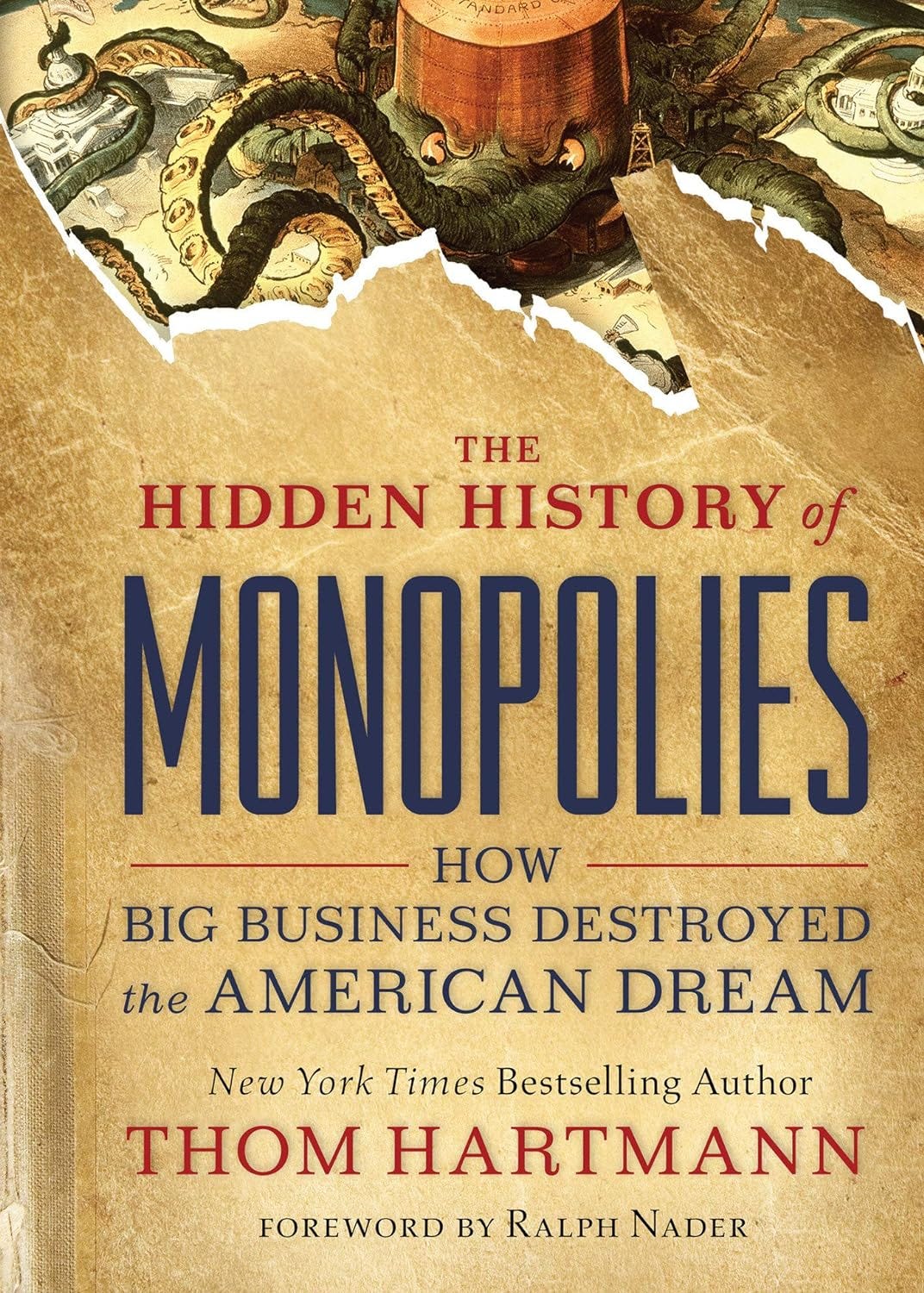Political change flows out of public dialogue.
Your weekly excerpt from one of my books. This week: "The Hidden History of Monopolies: How Big Business Destroyed the American Dream"

Political change flows out of public dialogue.
The American Revolution would probably never have got- ten off the ground were it not for meeting places available to the public—the most famous being Sam Adams’s tavern.67 Similarly, churches open to the public (although privately owned but regulated on a nonprofit basis) were the core of the 20th century’s civil rights movement.
Facebook has, for millions, replaced these public places as a nexus for social, cultural, and political interaction. As such, it resembles a part of the natural commons.
When radio achieved the equivalent of four hours of “screen time” a day for the average American, in 1927 and 1934 we passed comprehensive regulation of the industry to prevent the spread of disinformation and mandate responsible broad- casting practices.68
Similarly, our nation’s telephone systems have been both nationalized (during World War I) and repeatedly heavily regulated since 1913 to ensure users’ privacy and prevent the exploitation of customers or their personal information by Ma Bell.
For many Americans, Facebook is a primary source of news as well as a social, political, and civic activity center. It controls about a third of all web traffic.69 Starting from scratch, it would be hard to imagine such a central nexus for these kinds of critical interactions without envisioning it as a natural commons, like a civic center or broadcasting service.
The company controls that commons in ways that invade Americans’ privacy and disrupt democracy. Facebook’s exploitation of user information has been so egregious that Senator Ron Wyden, D-Ore., one of America’s most outspoken digital privacy advocates, has openly speculated about sending Mark Zuckerberg to prison.70 As Wyden and others point out, we regulate radio, TV, and newspaper advertising; how did Facebook get a free pass when it has a larger “news” reach than any other medium?
One solution is to regulate Facebook like a public utility. Alternatively, the federal government could take majority ownership of the company—or fund an alternative to it—so that it or the government version of it could be run not just to enrich executives and stockholders but also, like the Ma Bell of old, to serve the public good.71
The dominance of Google in everything from email to internet search raises similar concerns. At least in the days of Ma Bell, I had access to a phone regardless of my politics or what I said on the phone, and the company couldn’t sell access to the contents of my phone calls or a list of the people I called.


